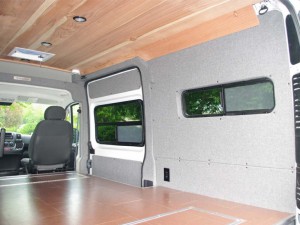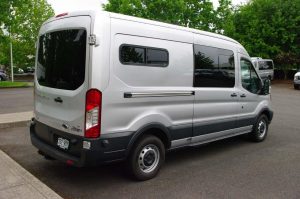 There are so many camper candidates out there, that it can be close to impossible to find the best van for camper conversion projects. Most of the time, experts will recommend a single vehicle maker or model. Take the Mercedes Benz Metris, for example. It’s got everything you might need to get a conversion project started, but what if you can’t find it where you live?
There are so many camper candidates out there, that it can be close to impossible to find the best van for camper conversion projects. Most of the time, experts will recommend a single vehicle maker or model. Take the Mercedes Benz Metris, for example. It’s got everything you might need to get a conversion project started, but what if you can’t find it where you live?
That’s where this guide comes in. Here, you won’t get recommendations pointing you to specific models. Rather, you would get advice on the specific things to look for that make a great camper conversion candidate. It can be any type or model of vehicle that’s available to you, which makes this guide as flexible as possible.
So without further ado, let’s dive into the things and characteristics that make the best van for camper conversion!
Related: RV Living 101: 10 Must-Have Camper Van Accessories
Size Matters
This is perhaps one of the most critical parts of choosing a camper. How big do you need it to be? And this question can be answered by determining how you plan to use the vehicle in the future. So ask yourself these questions:
Are you going to live in the van full-time or are you using it for shorter trips?
If you plan to make your camper your full-time home, then you’ll probably need more space. And like every other vehicle, the bigger it is, the more expensive it gets. On the other hand, you can certainly pay much less if you’re only using the camper for quick holiday trips and the like. Consider these and finding the right size camper will be a lot easier.
Related: How Much Does Full-Time RV Living Cost?
Do you have any hobbies that require a large storage space?
Do you plan to carry smaller vehicles such as mountain bikes? Or do you have a complete set of climbing equipment and camping gear? What about things such as surfboards, kayaks, or even an ATV?
If you’re the adventurous type who can’t live without bringing your outdoor toys, then go for a bigger camper to stash your gear. Try going for a vehicle with something like a garage-style layout. Or you can opt for something that features storage areas under fixed amenities, such as a bed.
Do you want to be able to stand up inside the camper?
Now this is another big deal. You see, campervans are supposed to be all about comfort and utility. So ask yourself if you want enough headroom to be able to stand up inside. It should make you able to choose a very specific type of vehicle with higher roofs.
Vehicles like these are often big, which means you’ll have to fork out a good amount of money to get them. But that’s the price you have to pay for a little extra comfort while on the road, not to mention extra vertical storage space.
Also, high-top roofs are a heaven-sent if you’re a pretty tall person, or have a lot of tall friends and loved ones who want to go on a ride with you.
 What Wheelbase Do You Need?
What Wheelbase Do You Need?
First off, what exactly is a wheelbase?
When looking for the best van for camper conversion, look at how far the front set of wheels is from the rear set. That is the wheelbase. And in general, a longer wheelbase means you have more living space to work with. Now, consider this situation: if you were building shelves and provisions for a full-sized bed, which one would fit you better: a shorter or longer wheelbase? The answer is quite obvious.
Still, a larger wheelbase isn’t always the way to go. The reason is simple: longer wheelbases mean the vehicle is much harder to maneuver. You will have a lot of trouble trying to park your camper in a campsite where there’s not much room to move in. Whereas if you go for a shorter wheelbase, it will feel like you’re driving a minivan rather than a truck.
Power Under The Hood
Unless you’re going for a trailer, you will need to consider the engine of the campervan you want to build. You have three main factors to look at when discussing engines:
Diesel or Gasoline?
Here’s the short answer. Go for diesel if you want respectable fuel efficiency right out of the dealership. Go for gasoline if you want lesser emissions and better overall reliability in all types of weather. At the end of the day, however, it still boils down to preference.
Power
Engine power matters depending on how much you intend to use the campervan. If you’re living in one full time, go for the one with the most power. The reason is because living in a camper full time will often mean you have to drive long distances, while hauling a lot more gear than the typical car. Go for less power if you only plan on using the vehicle for short, quick trips.
Torque
Torque refers to the amount of acceleration the engine can produce. Diesel engines tend to have better torque than gasoline engines, making them better suited to hauling heavy loads. Campervans are heavy, and you will need every bit of power you can get from your engine.
Now that the most important things are out of the way, here’s one last thing you need to consider: van conversion windows. You will be on the road much longer, which means your campervan will need sturdier windows to withstand Mother Nature. So when you go off to buy that vehicle, maybe you can consider replacing the windows with tougher ones. As such, we at Peninsula Glass are more than welcome to assist you!
The best van for a conversion project is out there. So go out there and get going!
